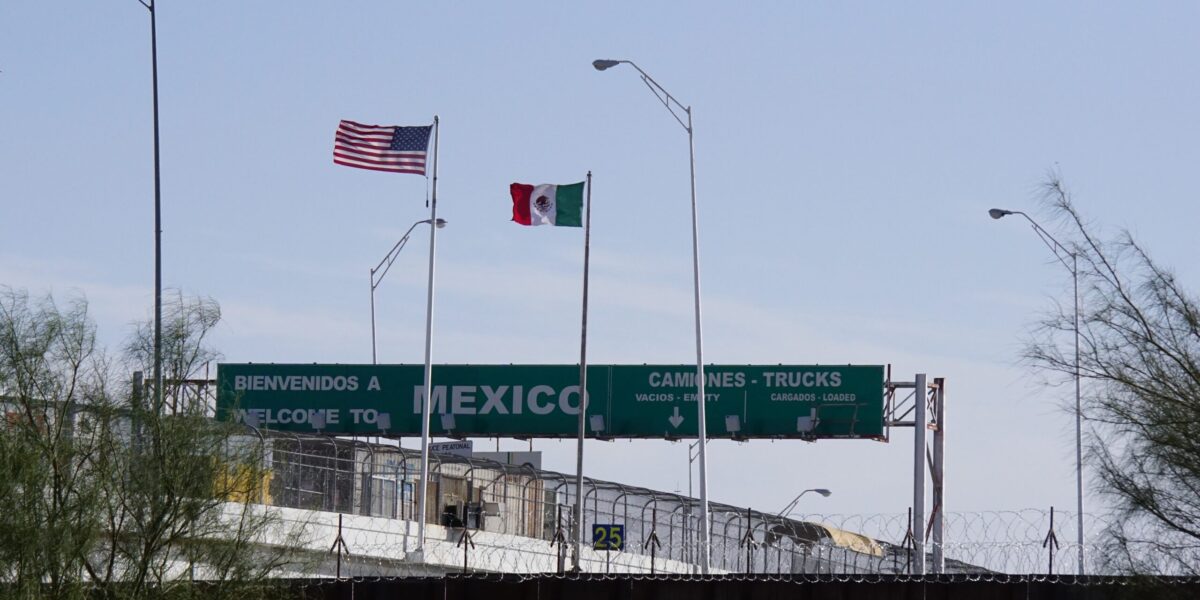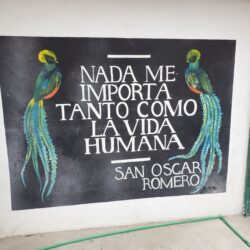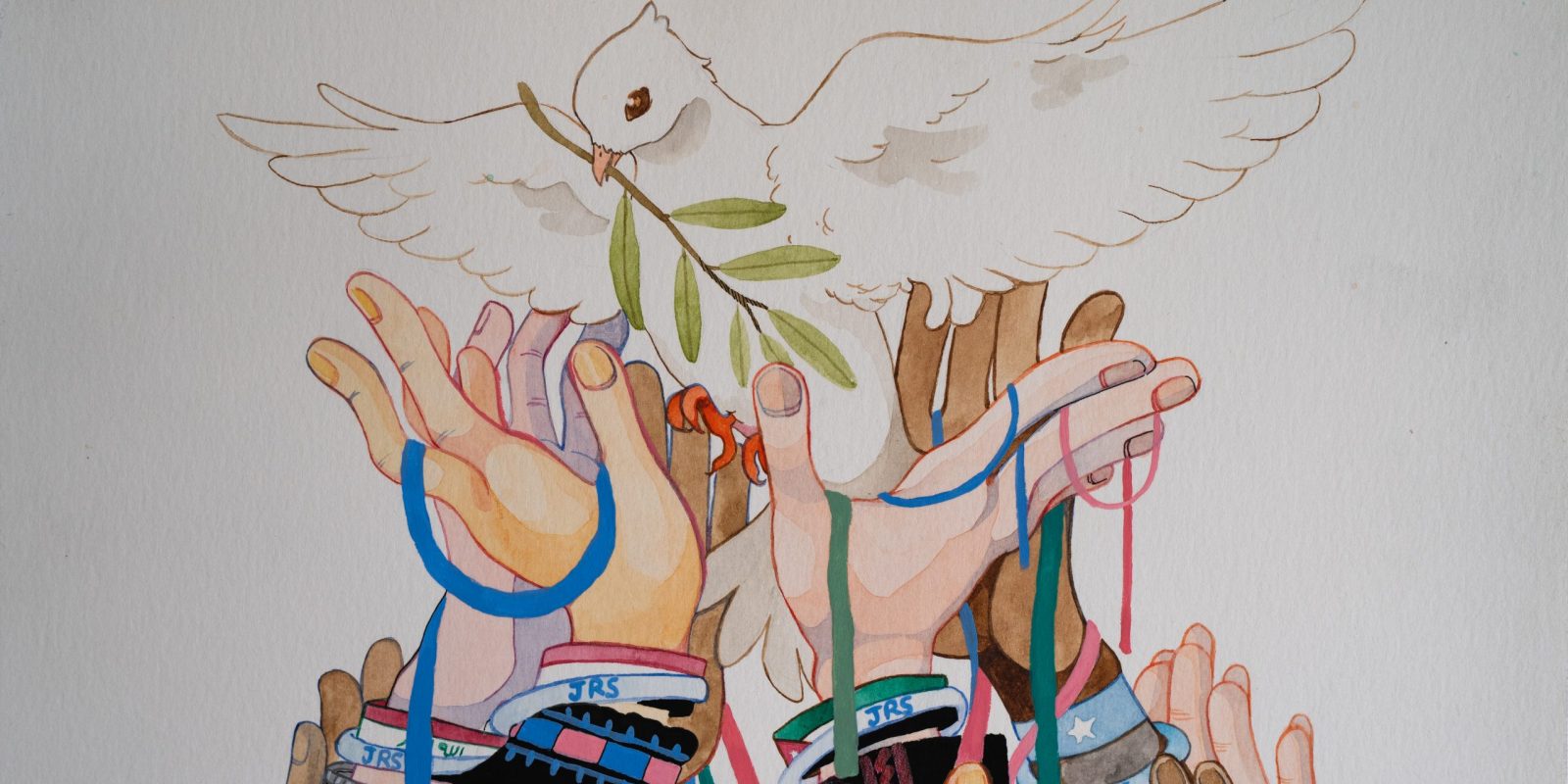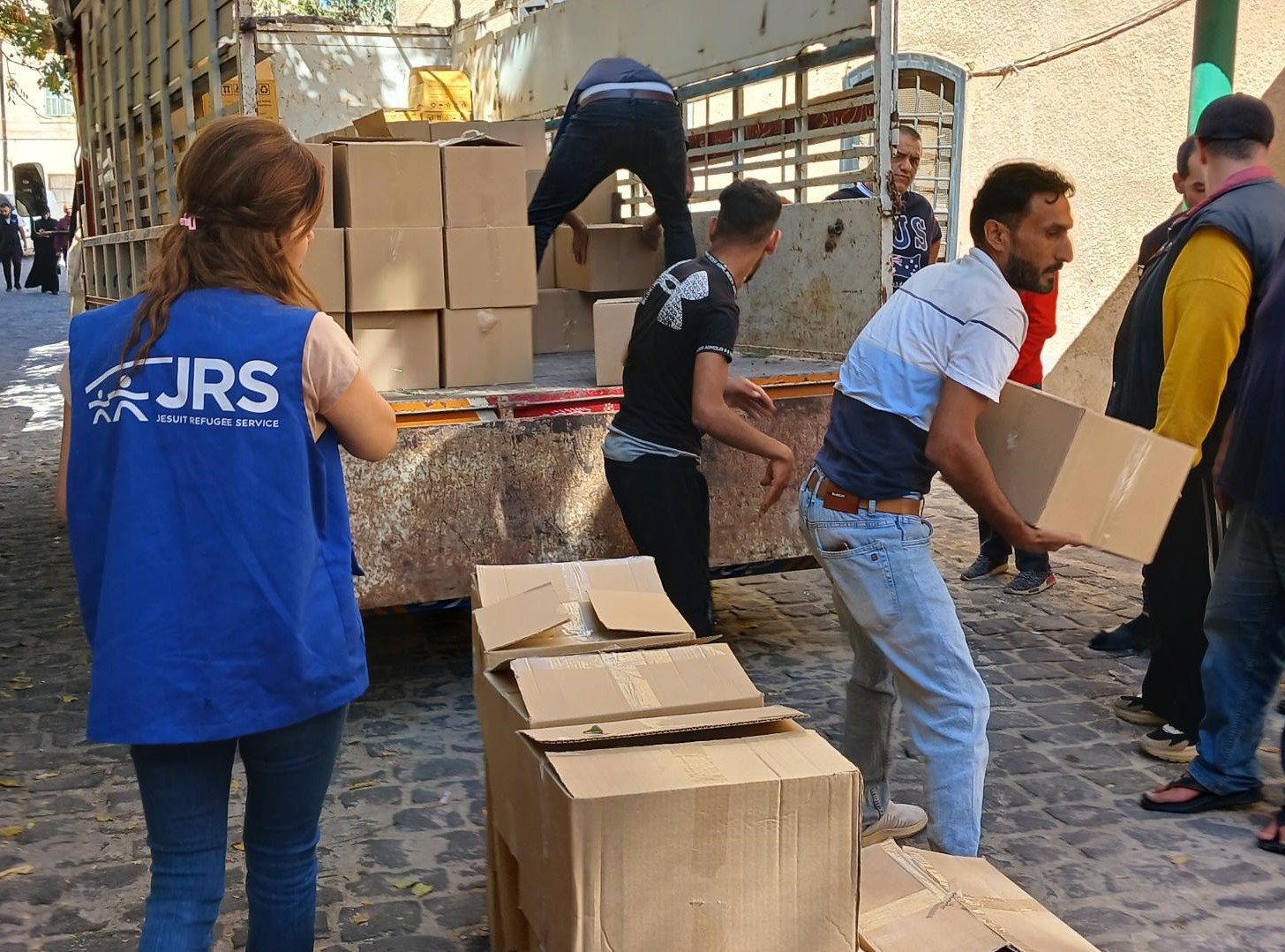JRS/USA President Kelly Ryan Reflects on the Community of El Paso
20 January 2025|JRS/USA - Kelly Ryan

In July, JRS/USA President Kelly Ryan traveled to the US-Mexico Border, where our El Paso-based team provides legal orientations and mental health and psychosocial support (MHPSS) to asylum seekers.
Throughout her visit, she met Americans working for the US government, running migrant shelters, and volunteering with organizations that serve those on the move.
Access to asylum has never been more vulnerable – but each of these encounters provided reasons to hope our country will show compassion for and be in solidarity with those seeking a better future.
Following is Kelly’s account of her week at the border and her belief that the spirit of El Paso is an example the entire country can benefit from.
___________________________
No American city represents “the border” like El Paso. Its community spirit, civic engagement, and pervasive can-do attitude are American to the core. Its history is complex and layered.
Spaniards arrived in 1598, well before the founding of New York City. They named the area “El Paso del Norte.” It became a city in 1659, and Franciscans soon established the Mission Nuestra Señora de Guadalupe. The original church still stands – across the border in Ciudad Juárez. The city was divided in 1850.
Perhaps this intertwined Mexican and US history explains why, on my recent visit, I saw a compassion and clarity about border realities at odds with mainstream perceptions. There is something great going on here that the rest of the U.S. could learn from.
“It’s how the community has always been,” says Manuela*, a lifelong El Pasoan and a case manager with Jesuit Refugee Service (JRS)/USA. “Is it our culture? Our upbringing?” Manuela says she “never really saw anything bad happen” in the city until a self-identified White nationalist opened fire at Walmart in 2019. “People thought, ‘Why would someone come to El Paso and do that? Why would someone target us?’”
On my first visit to El Paso as president of JRS/USA, I wanted to meet with as many of the organizations we collaborate with as possible – federal, city, and Church officials.
My team and I met with representatives of the Department of Homeland Security. I heard their frustration with our immigration system: the workload; the dearth of legal pathways into the US despite our labor shortage; the persistent lack of resources. We discussed our shared anguish about how lethal it has become to be a migrant at the border. Like my team and I, they see the aftermath of traffickers’ extreme tactics – which now routinely include sexually exploiting migrants, starving them, and holding them for ransom. One field office director recounted how she tells her team they must remember they work with people who are loved, and to treat all as they would want a member of their family treated.
JRS has provided legal services and/or mental health and psychosocial services in 10 shelters around El Paso. I visited as many as I could. Nearly everywhere, I found El Pasoans – including former law enforcement officials – volunteering or making second careers accompanying and serving migrants. Many described the joy this brings and their admiration for migrants’ resilience.
Nancy*, a retired county parole officer, volunteers full time at the Rescue Mission shelter. In her former career, she wished she could help people in a more active way. “It doesn’t feel like a job,” she said about her shelter work. I watched multiple children run up and embrace Nancy as they scampered through the shelter, happy to be safe.
At Sacred Heart shelter, I met Michael DeBruhl, a former Board Patrol chief. After Michael retired, he saw immigration rhetoric shift. “I started hearing that everyone coming across the border is a criminal,” he recently told USA TODAY. “We started separating children from their families. I was really bothered by all these things …. This wasn’t the America I grew up in.” When Title 42 was lifted, the street outside Sacred Heart Church swelled with more than 1,200 men. Michael stepped up, working with the Jesuits at Sacred Heart to develop an impressive shelter to meet the growing need. He remains its manager.
The respect everyone receives at Sacred Heart is evident. We toured the shelter, including the donation center, to which many El Pasoans have given new and used items. Michael observed how the simple act of choosing clean new clothing helps restore people’s sense of dignity. Later, at Holy Family Shelter, I watched members of the local Knights of Columbus serve migrants dinner. They approached this work with a spirit of joy, kindness and hospitality, inspiring trust and well-being.
El Paso is demonstrating hospitality, generosity, and a rejection of “us” versus “them.” Its citizens are living the Gospel of Matthew: “For I was hungry and you gave me food, I was thirsty and you gave me drink, I was a stranger and you welcomed me.”
The rest of the US can benefit from their example.

*Name has been changed for safety and security


